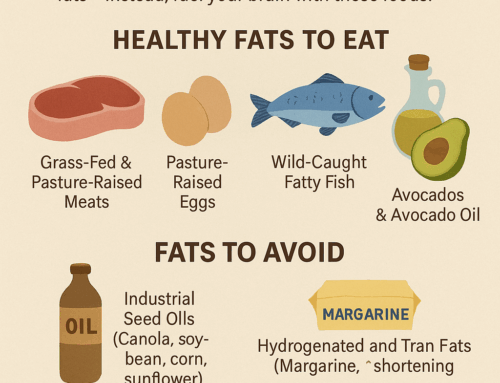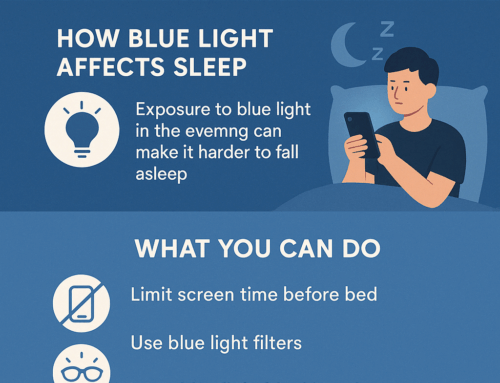How Gluten and Glyphosate in American Wheat Impact Mental Health
In recent years, gluten has been under intense scrutiny for its potential impact on mental health, particularly brain fog, anxiety, and depression. However, many people don’t realize that the problem may not lie solely with gluten but also with glyphosate, a chemical heavily used in American agriculture. Glyphosate, the active ingredient in Roundup weed killer, has become a staple in conventional farming, particularly in wheat production.
The combined effects of gluten and glyphosate create a concerning link to poor gut health, inflammation, and mental health struggles. This blog post will explore how glyphosate in American wheat contributes to mental health symptoms and why this connection matters for your mind and body.
What is Glyphosate, and Why is it Used?
Glyphosate is an herbicide widely used to kill weeds and speed up crop harvesting. In the United States, it is often sprayed on wheat fields shortly before harvest in a process called “pre-harvest desiccation.” This helps dry the wheat for easier harvesting, but it also leaves significant glyphosate residues in the final product—especially in wheat-based foods like bread, pasta, and cereal.
The widespread use of glyphosate in American agriculture has sparked growing concerns about its impact on both physical and mental health.
The Gluten-Glyphosate Connection
For individuals sensitive to gluten, wheat-based products can trigger symptoms such as brain fog, fatigue, depression, and anxiety. However, modern wheat production practices may exacerbate these issues. Here’s how glyphosate plays a role:
- Gut Disruption and “Leaky Gut”
Glyphosate acts as an antibiotic in the gut, killing beneficial bacteria that support digestion, immunity, and neurotransmitter production. When your gut microbiome is imbalanced, harmful bacteria can flourish, leading to inflammation and increased intestinal permeability (commonly known as “leaky gut”).- A leaky gut allows toxins, gluten particles, and inflammatory substances to enter the bloodstream, triggering an immune response and systemic inflammation.
- This inflammation can extend to the brain, contributing to symptoms like brain fog, low mood, and anxiety.
- Glyphosate and Gluten Sensitivity
- Research suggests that glyphosate may worsen gluten sensitivity, even in individuals without celiac disease.
- Glyphosate residues can alter the proteins in wheat, making gluten more difficult for the body to digest. This can trigger immune responses and cause neurological symptoms.
- Disruption of Neurotransmitter Production
- Your gut produces serotonin, dopamine, and other neurotransmitters that regulate mood and cognitive function.
- Glyphosate disrupts the shikimate pathway in gut bacteria, impairing their ability to produce essential amino acids like tryptophan, which is needed for the production of serotonin.
- Low serotonin levels are closely linked to depression, anxiety, and poor sleep quality.
- Increased Inflammation and Oxidative Stress
- Glyphosate has been shown to increase inflammation and oxidative stress throughout the body.
- Chronic inflammation, particularly in the brain, is linked to mental health disorders such as depression, anxiety, and even neurodegenerative diseases.
- Heavy Metals and Nutrient Deficiencies
Glyphosate can bind to soil minerals, reducing crops’ nutrient density. Consuming glyphosate-laden wheat may contribute to deficiencies in:- Magnesium (needed for stress regulation and brain function)
- Zinc (essential for mood and immune function)
- Iron (low levels can cause fatigue and brain fog)
These deficiencies further exacerbate mental health challenges.
Why is This Problem Unique to American Wheat?
While wheat is consumed globally, American wheat is uniquely problematic due to the heavy use of glyphosate. In many European countries, pre-harvest desiccation is banned or restricted, resulting in significantly lower glyphosate residues in their food supply.
Studies have found that individuals who consume American wheat products may experience more severe gluten-related symptoms compared to those eating wheat produced in other countries. This suggests that glyphosate exposure may be a key contributor to gluten sensitivity and its mental health effects.
The Mental Health Impact of Glyphosate Exposure
To summarize, glyphosate’s impact on mental health can be traced to:
- Gut Disruption: Destroying beneficial bacteria needed for neurotransmitter production.
- Leaky Gut: Increasing inflammation and allowing toxins to reach the brain.
- Nutrient Deficiencies: Blocking the absorption of essential nutrients for brain health.
- Neurotoxicity: Causing oxidative stress and inflammation in the brain.
When combined with gluten—already a common irritant for many—glyphosate creates a “perfect storm” for mental health challenges like:
- Brain fog and cognitive difficulties
- Anxiety and irritability
- Fatigue and low energy
- Depression and mood instability
What Can You Do?
If you suspect that gluten and glyphosate exposure are affecting your mental health, here are steps you can take:
- Choose Organic or Glyphosate-Free Wheat Products
- Look for organic or non-GMO-certified wheat products that are not sprayed with glyphosate.
- Brands that source wheat from Europe may also have lower glyphosate residues.
- Consider a Gluten-Free Diet
- Removing gluten for 6-8 weeks can help you determine if it contributes to mental health symptoms.
- Choose naturally gluten-free grains like quinoa, rice, or buckwheat.
- Support Your Gut Health
- Eat a variety of fermented foods (yogurt, kefir, sauerkraut) to replenish beneficial gut bacteria.
- Incorporate prebiotic foods like garlic, onions, and asparagus. Visit our blog to learn more about the benefits of grass-fed, grass-finished beef.
- Detoxify Your Body
- Consume foods rich in antioxidants (berries, greens, turmeric) to reduce inflammation and oxidative stress.
- Stay hydrated and consider practices like infrared sauna therapy to support natural detoxification.
- Work with a Functional Medicine Practitioner
- To develop a personalized treatment plan, a healthcare provider can test for glyphosate exposure, gluten sensitivity, and gut health issues.
Final Thoughts: A Hidden Mental Health Culprit?
The connection between gluten, glyphosate, and mental health highlights the importance of understanding how food affects our bodies and minds. While gluten sensitivity is often discussed, glyphosate exposure in American wheat adds another layer to the conversation—one that may explain why so many struggle with unexplained brain fog, anxiety, and depression.
Choosing clean, nutrient-dense foods and supporting your gut health can reduce glyphosate exposure, heal your body, and improve your mental well-being.
Do you notice a difference when avoiding gluten or choosing organic wheat products? Share your experience in the comments below!







Leave A Comment